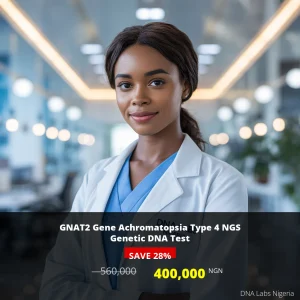TIMM21 Gene Mitochondrial Respiratory Chain Disease TIMM21 Related NGS Genetic DNA Test
Introduction
The TIMM21 Gene Mitochondrial Respiratory Chain Disease TIMM21 Related NGS Genetic DNA Test is a cutting-edge diagnostic tool designed to identify genetic mutations associated with mitochondrial respiratory chain diseases. Mitochondrial disorders can significantly impact neurological function, making early detection and diagnosis crucial for effective management and treatment.
What the Test Measures
This genetic test utilizes Next-Generation Sequencing (NGS) technology to analyze the TIMM21 gene. It detects specific genetic variations that may lead to mitochondrial dysfunction, which is often linked to various neurological disorders.
Who Should Consider This Test?
Individuals with a family history of mitochondrial diseases or those exhibiting symptoms such as:
- Muscle weakness
- Neurological issues
- Developmental delays
- Seizures
should consider undergoing this test. Consulting with a neurologist and undergoing a genetic counseling session to draw a pedigree chart of affected family members is recommended prior to testing.
Benefits of Taking the Test
- Early diagnosis of potential genetic disorders.
- Informed decision-making regarding treatment options.
- Family planning and understanding hereditary risks.
- Access to specialized care and support.
Understanding Your Results
Results from the TIMM21 Gene Test will provide insights into the presence of genetic mutations. A genetic counselor will help interpret the results, discussing potential implications for health and family members.
Test Pricing
| Discount Price | Regular Price |
|---|---|
| 400000 NGN | 560000 NGN |
How to Book the Test
Ready to take the next step? Book the TIMM21 Gene Mitochondrial Respiratory Chain Disease TIMM21 Related NGS Genetic DNA Test today. For inquiries or to schedule your test, please call or WhatsApp us at +2348110567037. Our team is here to assist you with all your testing needs.
Turnaround time for results is approximately 3 to 4 weeks, and the test can be performed using blood, extracted DNA, or one drop of blood on an FTA card. Ensure you have a clinical history prepared to facilitate the testing process.







